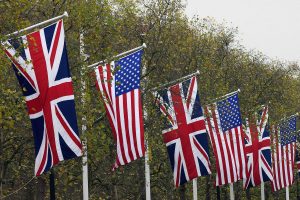Written forms for American English are consistent across the United States. The informal standard for American colloquialism and translate english to tagalog correct grammar has emerged through the media and geographic and social mobility. This standard is commonly referred to as “common American” or “standard midwestern accent or dialect.” It is usually used by the broadcasters of the regional channels, while the broadcasters of the local channels adhere to the provincial dialects. According to William Labov, despite this unofficial standard, regional standards not only remained in use, but were strengthened. Regional dialects in the United States mainly reflect language elements of major immigrant groups in each individual region of the country, especially in terms of pronunciation and local vocabulary.
Scholars identify at least four main regional variations of spoken American English: northern (or northeastern), southern, central, and western (Labov, Ash, and Boberg; 2006). After the American Civil War, migrants from the East settled in the western territories, which led to the mixing and assimilation of dialects. Thus, the differences between dialects in the eastern part of the country are more pronounced. There are also local dialects with quite significant differences, for example in the Southern Appalachians and New York.
The official written British version is characterized by a certain lexical consistency. Conversational forms, on the other hand, can have many variations, thus reflecting the long history of dialectal development among isolated populations. Dialects and accents differ not only depending on the historical province of the United Kingdom: England, Northern Ireland, Scotland, Wales – but also on the locality within each of these territories. Their nuances are also characteristic of the speech of various socio-economic groups in a particular region. The normative pronunciation – “the speech of the educated man of Southeast England” – is traditionally considered “correct English”, it is also called “English of BBC announcers” and “Royal English”. Now the BBC and other broadcasters are deliberately inviting announcers with different accents and dialects of the British version, and the concept of “correct English” has ceased to be defining. British and American English are the reference standards for English spoken, written and taught in all other countries.
have many variations, thus reflecting the long history of dialectal development among isolated populations. Dialects and accents differ not only depending on the historical province of the United Kingdom: England, Northern Ireland, Scotland, Wales – but also on the locality within each of these territories. Their nuances are also characteristic of the speech of various socio-economic groups in a particular region. The normative pronunciation – “the speech of the educated man of Southeast England” – is traditionally considered “correct English”, it is also called “English of BBC announcers” and “Royal English”. Now the BBC and other broadcasters are deliberately inviting announcers with different accents and dialects of the British version, and the concept of “correct English” has ceased to be defining. British and American English are the reference standards for English spoken, written and taught in all other countries.
Although the dialects of English in the former British Empire are based to varying degrees on Standard British English, many have developed their own unique dialects, especially with differences in pronunciation, vocabulary and idiomatic expressions. This is mainly the case for Canadian English and Australian English, which are respectively the third and fourth largest speakers in the world.

